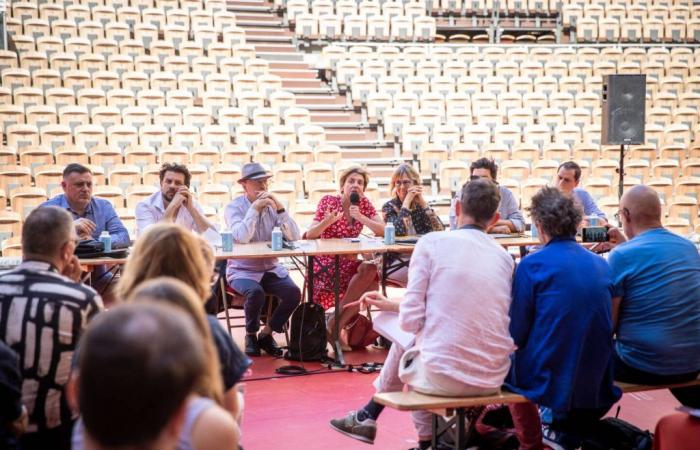DAlready subject, for some, to the constraints of the Olympic calendar, here are the summer festivals caught up by another agenda, that of the legislative elections and the new political situation that will emerge from the ballot boxes on July 7, the day of the second round. Decided by Emmanuel Macron on the evening of the European elections and the large victory of the extreme right, the dissolution of the National Assembly and the prospect of a future government led by the National Rally (RN) are blowing a wind of worry over many cultural events.
With its long history stemming from the Resistance, crossed by struggles and demands, the Avignon Festival is at the forefront. Its director, the Portuguese Tiago Rodrigues, wishes in this context a “popular, progressive, ecological, feminist and anti-racist festival”. Numerous speeches, general assemblies, union and artistic demonstrations are to be held in the city until July 8. And after? At the time of writing, this is still political fiction, but there is no doubt that a victory for the RN would cause strong shocks in a world of culture that is hostile to it and has continued to multiply platforms and petitions to call for a blockade.
Peace and unity
Through their artistic offerings, the Arles Photography Meetings, the Aix-en-Provence International Lyric Art Festival and the Avignon Festival have always been in tune with the upheavals of the world. This year is no exception. In Aix-en-Provence, for example, the Mediterranean Youth Orchestra is celebrating its 40th anniversary and continues to defend the values of peace and unity. A challenge, as its deputy director, Pauline Chaigne, explains, in a geographical space where it is “more difficult to recruit young artists who can express themselves freely, who feel safe enough to do so”.
In Arles, the Spanish-Belgian photographer Cristina de Middel delivers a story that is both raw and mythological about the migration of Mexicans to the United States. A way to change our view of these women and men who attempt the impossible to change their lives. In Avignon, the strong South American presence is also part of this desire to confront reality with strong works, marked by postcolonial questions and issues that relate to identity and history for these artists. from countries that have experienced dictatorship.
You have 15.85% of this article left to read. The rest is reserved for subscribers.







